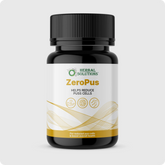Natural Solutions for PCOS: Herbal Treatments & Women's Fertility Guide 2025
Solutions for PCOS in Natural Medicine: A Comprehensive Guide to Herbal Treatments
Polycystic Ovary Syndrome (PCOS) affects millions of women worldwide, causing hormonal imbalances that can lead to irregular periods, weight gain, and fertility challenges. While conventional treatments exist, many women are turning to natural medicine and herbal solutions to manage their PCOS symptoms effectively. This comprehensive guide explores evidence-based natural approaches that can help restore hormonal balance and improve fertility outcomes.
Understanding PCOS and Its Impact on Women's Health
PCOS is a complex endocrine disorder characterized by polycystic ovaries, chronic anovulation, and elevated androgen levels. The condition manifests through various symptoms including irregular menstrual cycles, excessive hair growth (hirsutism), acne, and most significantly, women infertility. The syndrome affects approximately 10-15% of women of reproductive age, making it one of the leading causes of fertility challenges in modern healthcare.
The hormonal disruptions associated with PCOS create a cascade of metabolic issues, including insulin resistance, which further complicates the condition. Women with PCOS often experience difficulty conceiving due to irregular ovulation patterns, making natural fertility support crucial for those planning to start a family.
The Role of Natural Medicine in PCOS Management
Traditional medicine has long recognized the potential of plant-based remedies in addressing hormonal imbalances. Recent scientific research validates many of these traditional approaches, showing that naturopathic doctors offer a multipronged approach to PCOS symptom management including diet, lifestyle changes, and herbal supplements. This holistic approach addresses the root causes of PCOS rather than merely managing symptoms.
Herbal solutions provide a gentler alternative to pharmaceutical interventions, working synergistically with the body's natural healing mechanisms. Unlike conventional medications that may carry side effects, carefully selected herbs can restore hormonal balance while supporting overall reproductive health. For women seeking comprehensive natural support, specialized programs like the Female Fertility Course offer structured approaches to managing PCOS through natural methods.
Evidence-Based Herbal Treatments for PCOS
Vitex Agnus-Castus (Chasteberry)
One of the most researched herbs for women's reproductive health, Vitex agnus-castus has shown remarkable results in managing PCOS symptoms. Researchers found Vitex agnus-castus and Cimicifuga racemosa to be most effective in managing irregular ovulation and resultant infertility. This herb works by supporting the pituitary gland's function, helping to regulate luteinizing hormone (LH) and follicle-stimulating hormone (FSH) levels.
Chasteberry is particularly beneficial for women experiencing irregular menstrual cycles and fertility challenges associated with PCOS. The extract from the fruit of the chasteberry tree contains a wide range of nutrients and phytochemicals that can help regulate hormone levels in the body. Regular use of this herb can help restore natural ovulation patterns and improve fertility outcomes.
Cinnamon for Metabolic Support
Cinnamon has emerged as a powerful ally in managing the metabolic aspects of PCOS. Cinnamon, curcumin, sage, fennel, and traditional Chinese herbal medicine are among some of the herbal remedies that so far show good potential to be the perfect complementary therapy tools as they create better glycemic control, inflammation reduction, and menstrual cycle regulation.
The active compounds in cinnamon help improve insulin sensitivity, which is crucial for women with PCOS who often struggle with insulin resistance. By enhancing glucose metabolism, cinnamon can help reduce some of the underlying metabolic dysfunctions that contribute to women infertility in PCOS cases.
Spearmint for Androgen Reduction
Elevated androgen levels are a hallmark of PCOS, contributing to symptoms like hirsutism and acne. Spearmint tea has shown promising results in reducing testosterone levels naturally. This simple yet effective herbal solution can be easily incorporated into daily routines and provides antioxidant benefits alongside hormone regulation.
Inositol: Nature's Insulin Sensitizer
While technically not an herb, inositol deserves mention as a naturally occurring compound that has revolutionized PCOS treatment. Inositol as Myo-inositol and D-chiro inositol is a foundational formula in our PCOS Support Combo, and natural supplements like berberine, chromium, and inositol can improve many of the symptoms and issues related to PCOS.
Comprehensive Herbal Protocols for PCOS Management
Effective PCOS management requires a multi-faceted approach combining various herbal solutions. Plants such as aloe vera and chamomile improve fertility by increasing the number of ovarian follicles. Besides, Vitex agnus-castus and octane reduce hirsutism by reducing testosterone and androgen levels. This demonstrates the importance of combining different herbs to address various aspects of the condition.
A comprehensive herbal protocol might include:
Morning Protocol: Start with adaptogenic herbs like ashwagandha to support stress response and cortisol regulation. Combine with green tea for its antioxidant properties and mild caffeine content that can support metabolic function.
Afternoon Support: Include herbs that support digestive health and nutrient absorption, such as ginger and turmeric. These herbs also provide anti-inflammatory benefits that can help reduce PCOS-related inflammation.
Evening Routine: Wind down with relaxing herbs like chamomile or passionflower, which support sleep quality and stress reduction. Quality sleep is crucial for hormone regulation and overall reproductive health.
For women seeking a structured approach to implementing these protocols, the Female Fertility Course provides detailed guidance on creating personalized herbal regimens for PCOS management.
Dietary Herbs and Nutritional Support
Beyond medicinal herbs, culinary herbs and spices play a crucial role in PCOS management. Almonds, cashews, spinach, and bananas are PCOS-friendly foods rich in magnesium. A diet high in fiber can help improve your digestion. Incorporating herbs like oregano, basil, and thyme into meals provides additional antioxidant support while making healthy eating more enjoyable.
Magnesium-rich foods and herbs are particularly important for women with PCOS, as this mineral supports insulin sensitivity and helps regulate blood sugar levels. Herbs like nettle and red clover are excellent sources of minerals and can be consumed as teas or incorporated into smoothies.
Addressing Women Infertility Through Herbal Medicine
Women infertility related to PCOS often stems from irregular ovulation and hormonal imbalances. Herbal medicines may enhance fertility by supporting the natural functions of the ovulation and fertility process. This natural approach focuses on restoring the body's innate ability to conceive rather than forcing ovulation through synthetic hormones.
Recent research has shown promising results in using herbal combinations for fertility enhancement. Cuscuta chinensis Lam. (Tusizi) is the most commonly used herb for treating female infertility, followed by Angelica gigas Nakai (Danggui) and Cyperus rotundus L. (Xiangfuzi). These traditional herbs work synergistically to support reproductive function and improve conception rates.
The Female Fertility Course incorporates these time-tested herbal approaches, providing women with comprehensive support for overcoming fertility challenges naturally.
Lifestyle Integration and Holistic Approaches
Successful PCOS management through herbal solutions requires integration with lifestyle modifications. Beyond supplements, lifestyle changes like weight loss and exercise are an important part of treatment. They can help improve insulin resistance and fertility in people with PCOS. Combining herbal treatments with regular physical activity, stress management, and proper nutrition creates a synergistic effect that amplifies therapeutic outcomes.
Stress reduction is particularly crucial for women with PCOS, as chronic stress can exacerbate hormonal imbalances. Adaptogenic herbs like rhodiola and holy basil can help the body better cope with stress while supporting overall hormonal health.
Safety Considerations and Professional Guidance
While herbal solutions are generally safer than pharmaceutical interventions, proper guidance is essential for optimal results. While herbal supplements are often marketed as "natural," this doesn't mean these products are safe. Working with qualified herbalists or healthcare providers familiar with women's reproductive health ensures safe and effective treatment protocols.
Quality sourcing of herbs is paramount, as the therapeutic efficacy depends on proper harvesting, processing, and storage. Reputable suppliers who provide third-party testing and quality assurance help ensure that herbal products deliver their intended benefits.
Recent Research and Future Directions
The field of herbal medicine for PCOS continues to evolve with new research emerging regularly. More regular periods, more weight loss, more pregnancies and improved mood were just some of the benefits seen in recent studies examining herbal interventions for PCOS. This ongoing research validates traditional knowledge while providing scientific backing for herbal treatments.
Future research directions include personalized herbal medicine based on genetic profiles and microbiome analysis. This precision approach to herbal treatment may offer even more targeted and effective solutions for women struggling with PCOS and related fertility challenges.
Conclusion: Embracing Natural Solutions for PCOS
Natural medicine offers hope and healing for women facing the challenges of PCOS and women infertility. Through evidence-based herbal solutions, women can address the root causes of their condition while supporting overall reproductive health. The key to success lies in comprehensive approaches that combine appropriate herbs, lifestyle modifications, and professional guidance.
For women ready to explore natural solutions for PCOS and fertility challenges, resources like the Female Fertility Course provide structured, evidence-based approaches to healing. By embracing the wisdom of traditional medicine supported by modern research, women can reclaim their reproductive health and achieve their fertility goals naturally.
The journey toward hormonal balance and improved fertility through natural means requires patience and commitment, but the results can be transformative. With proper guidance and high-quality herbal solutions, women with PCOS can experience significant improvements in their symptoms, menstrual regularity, and overall quality of life.








